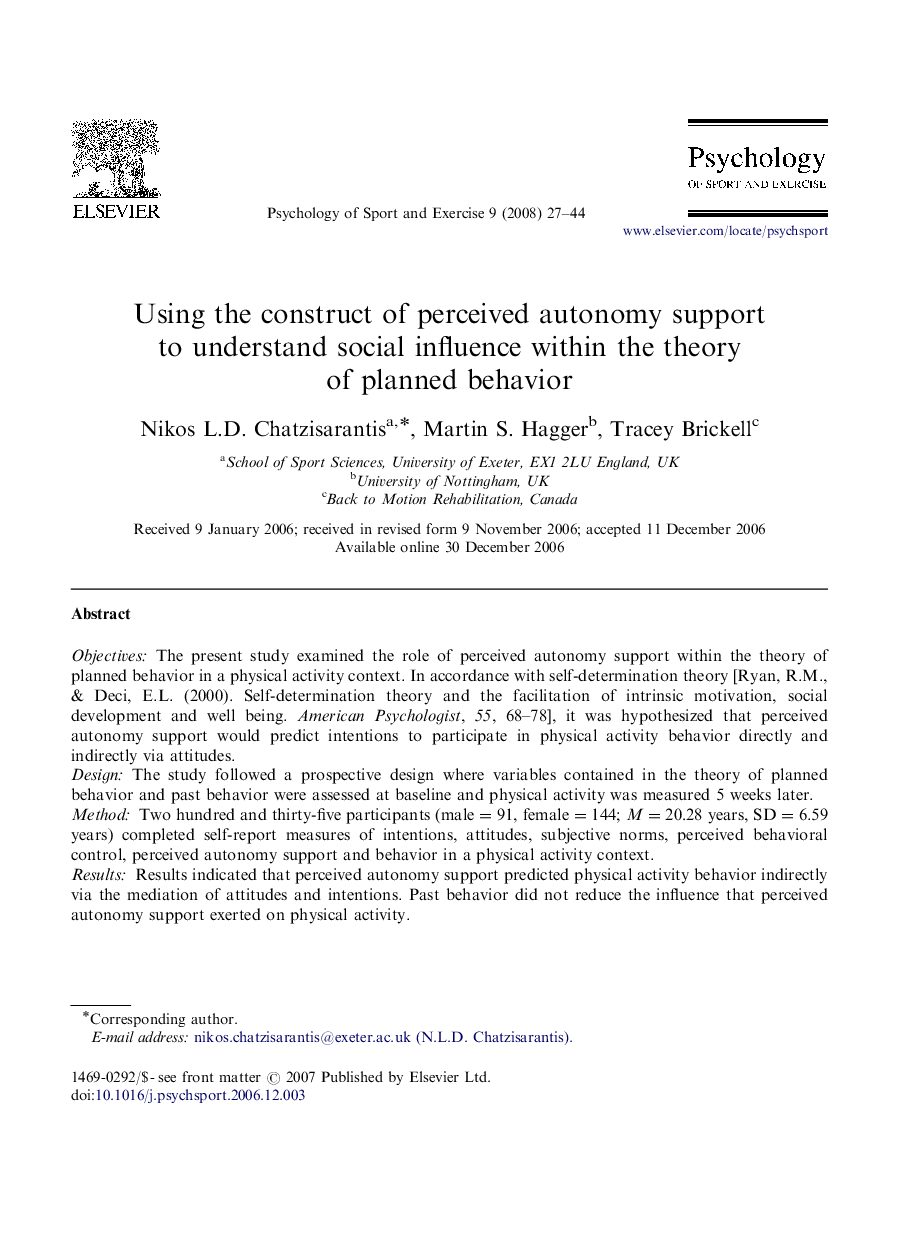| Article ID | Journal | Published Year | Pages | File Type |
|---|---|---|---|---|
| 895031 | Psychology of Sport and Exercise | 2008 | 18 Pages |
ObjectivesThe present study examined the role of perceived autonomy support within the theory of planned behavior in a physical activity context. In accordance with self-determination theory [Ryan, R.M., & Deci, E.L. (2000). Self-determination theory and the facilitation of intrinsic motivation, social development and well being. American Psychologist, 55, 68–78], it was hypothesized that perceived autonomy support would predict intentions to participate in physical activity behavior directly and indirectly via attitudes.DesignThe study followed a prospective design where variables contained in the theory of planned behavior and past behavior were assessed at baseline and physical activity was measured 5 weeks later.MethodTwo hundred and thirty-five participants (male=91, female=144; M=20.28M=20.28 years, SD=6.59 years) completed self-report measures of intentions, attitudes, subjective norms, perceived behavioral control, perceived autonomy support and behavior in a physical activity context.ResultsResults indicated that perceived autonomy support predicted physical activity behavior indirectly via the mediation of attitudes and intentions. Past behavior did not reduce the influence that perceived autonomy support exerted on physical activity.ConclusionsIt was concluded that perceived autonomy support assists in the explanation of the social influences on intentions and physical activity behavior.
